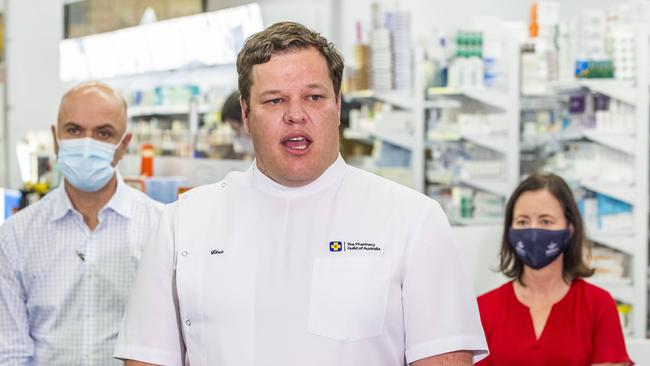Mum’s ‘life changing’ transformation after being prescribed controversial drug
A Queensland mother has shared the incredible weight loss results she achieved after being prescribed a controversial diabetes drug, amid a push for restrictions on it be lifted.
QLD News
Don't miss out on the headlines from QLD News. Followed categories will be added to My News.
A Queensland mother has opened up about her weight loss battle and the incredible results she achieved after being prescribed controversial diabetes drug Ozempic, amid a push for restrictions on it to be lifted for people suffering obesity.
In the face of a global shortage, the Therapeutic Goods Administration recommended Ozempic be prioritised for Type 2 diabetics only - but a leading world obesity expert has slammed the restriction as “unfair” as other experts also rail against the ruling.
Gold Coast mother-of-three Helen Hall knows the benefits of the drug first-hand.

Ms Hall had been unable to shift weight despite exercising and eating healthily and she didn’t want to resort to invasive weight loss methods like lap band surgery.
After Ms Hall gained 15kg her mother, who has Type 2 diabetes, encouraged her to seek medical advice.
To the 44-year-old’s surprise she was prescribed Ozempic - the same drug used to treat Type 2 diabetes, although she wasn’t diagnosed as diabetic.
“I got a referral to see Dr Ciin at the Gold Coast hospital. She did all my blood work and a full check-up,” Ms Hall said.
“She said ‘your insulin, it just all plays up with your hormones and with the stress’, so the hormone specialist gave me the sample pack (of Ozempic) to try.”
The pre-diabetic described the drug as “life changing” and a “game changer”.
“I’ve lost 10kg within 13 weeks,” she said.
“But you can’t just rely on the drug, you have to put in the work”.
Ms Hall sees an exercise physiologist who slightly changed how she had already been training.
She does weight training twice a week, swims four times a week and follows a healthy eating plan.

One of Australia’s leading dietitians, Susie Burrell, said there were a lot of people who have underlying hormonal dysregulation that made it difficult for them to lose weight.
“A lot of people don’t understand that losing weight is not a one size fits all model,” Ms Burrell said.
“People don’t like hearing that, they say, ‘oh, they’re lazy’, but if insulin levels are high, it’s possible that will block that fat loss”.
Due to the increase in demand semaglutide (Ozempic) will experience a shortage until December.
Professor Joseph Proietto, chairman of the Clinical Care Committee of World Obesity, has written to the TGA arguing the situation is “unfair” on obese patients and they were “now being shamed by pharmacists to go away and eat less”.

President of The Pharmacy Guild Queensland Chris Owen said health professionals were being reminded to prioritise Ozempic for people with Type 2 diabetes.
“When they did the initial scoping of how much (Ozempic) they thought Australians were going to use, they underestimated by probably a factor of two or three,” Mr Owen said.
Mr Owen said it had been a priority for the government to invest in more onshore manufacturing since the pandemic, however Ozempic was a specialised category.
“There’s only a couple of factories in the world that have the capability to do the intravenous administration techniques,” he said.
“It’s not that we don’t have the technology, I just don’t think we have the investment capability in Australia”.
There are two other drugs which work similar to Ozempic: Trulicity and Saxenda, however Ozempic is the cheapest and reportedly most effective.
Mr Owens said Trulicity had started to have shortage problems as well.



